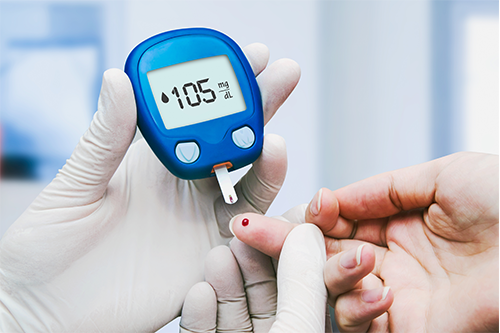Resource Library
Start Reading

The association between diabetes and periodontal disease has been well known to dental professionals for many years. You may have known that diabetes makes you more susceptible to periodontitis, but did you realize that periodontitis may also raise your chances of developing diabetes?
What is gum disease?
Gum disease is an infection of the gums around the teeth. This umbrella term encapsulates all stages of the disease, from gingivitis to periodontitis.
Gingivitis is an inflammation of the gums that causes redness and tenderness. If left untreated, some cases of gingivitis progress to periodontitis. Periodontitis is characterized by gum recession, deep pockets forming in the gum tissue, and jaw bone loss. The dominance of periodontal bacteria in the mouth stimulates the immune system to fight against this foreign invader. This response leads to the recession of the gums and bones, which, in turn, often leads to the loss of teeth.
Gum disease raises your blood sugar levels
Approximately one-half of adults 30 years or older have periodontitis, making it a shockingly common health problem in the United States. Research has shown that periodontitis can raise blood sugar levels, which can foster the onset of diabetes. In a meeting by experts in gum and diabetes research worldwide, researchers discovered a relation between diabetes and gum health: patients with gum disease have higher long term blood sugar levels. They also found that this condition correlates with their higher risk for developing type 2 diabetes.
Scientists believe the bacteria infecting the gums may leak into the bloodstream during daily activities, such as eating or brushing your teeth. This process causes the immune system to react, which can have a harmful effect on major body systems. Periodontal germs have been found all over the body, including the lungs, heart, brain—even in the placenta of pregnant women! The body’s immune system reacts as it fights off bacteria invaders, which over time can lead to chronic inflammation of the gums and body systems.
Because periodontitis increases blood sugar levels, the body must learn to function with higher glucose. This alters the body’s natural metabolism, making it more difficult for the patient to maintain normal blood sugar. The good news is that there are things you can do, often on a daily basis, to combat this cycle:
Treat diabetes and periodontal disease at PDFP
Every case of gum disease needs to be treated accordingly. The major takeaway here is that if you’re experiencing gum disease symptoms, remember that this can and will affect more than just your oral health. The relationship between diabetes and periodontal disease is well-established.
At Penn Dental Family Practice, our dentists are highly skilled dental professionals who use preventive strategies for comprehensive care. Whether you or a loved one have diabetes, or you have a history of gum disease, regular visits to the dentist should be an essential part of your overall care. To make your appointment with us to learn more about the connection between diabetes and periodontal disease,